 Vladimir Dzhuvinov gave the innovative and informative presentation “The Key Is Not Enough!” on OpenID Connect Federation at the 2023 OAuth Security Workshop in London. This action thriller of a presentation covers history, goals, mechanisms, status, deployments, and possible futures of the work. The comparisons between X.509 certificates and Federation Trust Infrastructure are particularly enlightening!
Vladimir Dzhuvinov gave the innovative and informative presentation “The Key Is Not Enough!” on OpenID Connect Federation at the 2023 OAuth Security Workshop in London. This action thriller of a presentation covers history, goals, mechanisms, status, deployments, and possible futures of the work. The comparisons between X.509 certificates and Federation Trust Infrastructure are particularly enlightening!
Category: OpenID Page 3 of 11
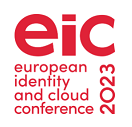 I had the distinct honor of being invited to give a keynote talk at EIC 2023. The result was Touchstones Along My Identity Journey. My talk abstract was:
I had the distinct honor of being invited to give a keynote talk at EIC 2023. The result was Touchstones Along My Identity Journey. My talk abstract was:
In 2005, Kim Cameron excitedly told me about digital identity and set my life on a course to “Build the Internet’s missing identity layer”. In this talk I’ll tell key stories from my identity journey — stories of the people, ideas, and lessons learned along the way. I’ll speak of technology and collaboration, usability and business models, solving problems people actually have, and building new ecosystems. Come with me on this journey of exploration, trials, triumphs, and humor as I recount touchstones of the human endeavor that is digital identity.
Kuppinger Cole has posted a video of my keynote on YouTube. I was pleased with how well it went. After the first few sentences, I was in the zone! I hope many of you find the messages in the talk useful.
My slides are also available in (PowerPoint) and PDF.
Special thanks go to the OpenID Foundation for supporting my trip to EIC this year and to designer Alistair Kincaid at MATTR for helping me transcend my usual black-bulleted-text-on-a-white-background presentation style!
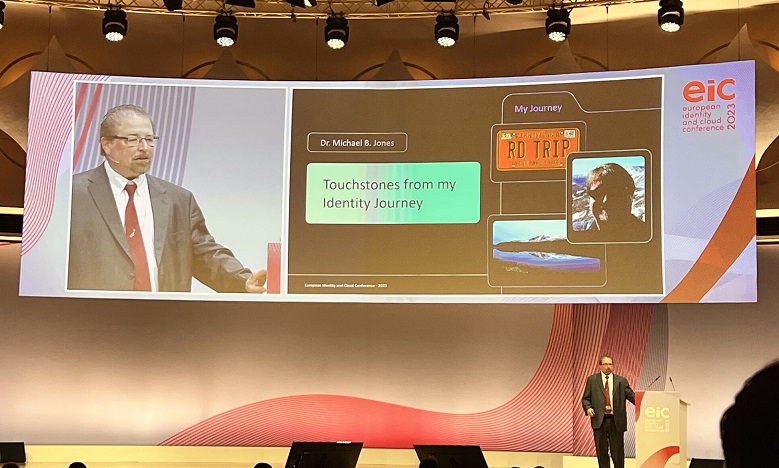
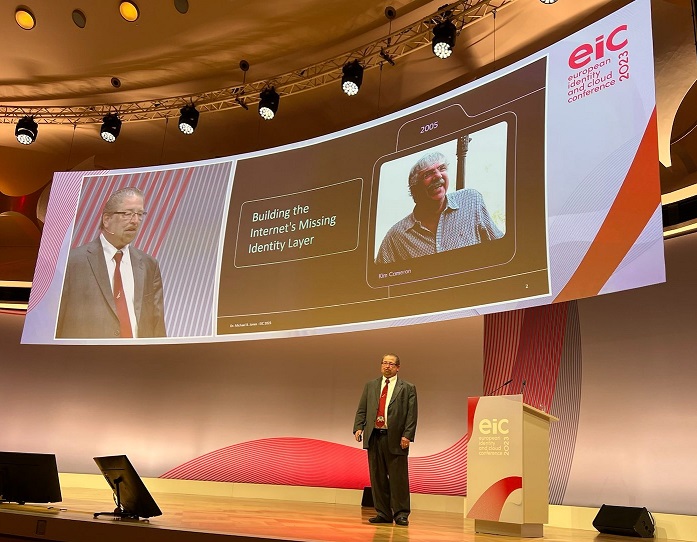
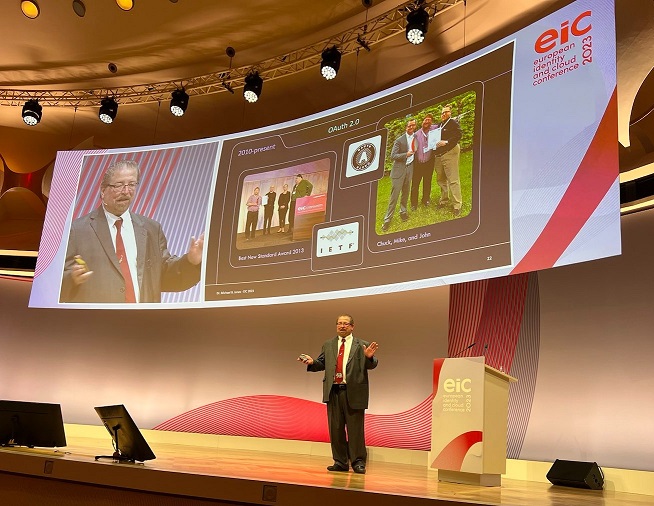
 Giuseppe De Marco and I presented the session How do you know who to trust? at EIC 2023.
Giuseppe De Marco and I presented the session How do you know who to trust? at EIC 2023.
A key question when granting access to resources is ‘Who do you trust?’. It’s often important to know who the party is that you’re interacting with and whether they’ve agreed to the terms and conditions that apply when accessing a resource.
OpenID Connect enables identities of participants to be securely established but doesn’t answer the question of whether a participant is trusted to access a resource such as your personal data. A complementary mechanism is needed to do that. In small-scale and static deployments, it’s possible to keep a list of the trusted participants. However, in large-scale and dynamic deployments, that doesn’t scale.
This presentation described how the OpenID Connect Federation protocol enables scalable trust establishment with dynamic policies. It does so by employing trust hierarchies of authorities, each of which are independently administered. Examples of authorities are federation operators, organizations, departments within organizations, and individual sites.
Two OpenID Connect Federations are deployed in Italy, enabling secure access to digital services operated by Italian public and private services with Italian digital identities. This presentation described why OpenID Connect Federation was selected for them and how it meets their needs. OpenID Connect Federation is also being used by the GAIN PoC.
Our presentation is available in (PowerPoint) and PDF.
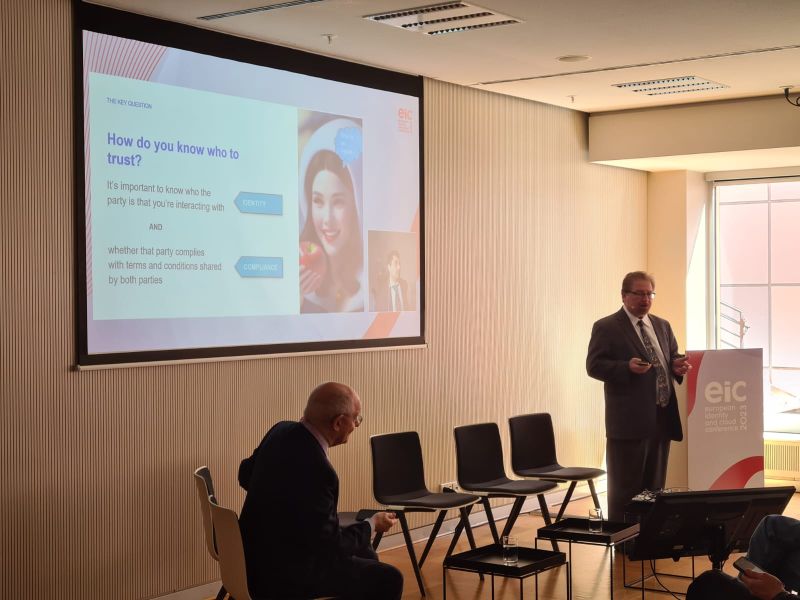
 I gave the following presentation at the Monday, April 17, 2023 OpenID Workshop at Microsoft:
I gave the following presentation at the Monday, April 17, 2023 OpenID Workshop at Microsoft:
- OpenID Connect Working Group (PowerPoint) (PDF)
I also gave the following invited “101” session presentation at the Internet Identity Workshop (IIW) on Tuesday, April 18, 2023:
- Introduction to OpenID Connect (PowerPoint) (PDF)
 I gave the following presentation at the Monday, November 14, 2022 OpenID Workshop at VISA:
I gave the following presentation at the Monday, November 14, 2022 OpenID Workshop at VISA:
- OpenID Connect Working Group (PowerPoint) (PDF)
I also gave the following invited “101” session presentation at the Internet Identity Workshop (IIW) on Tuesday, November 15, 2022:
- Introduction to OpenID Connect (PowerPoint) (PDF)
 Thanks to all who helped us reach this important milestone! This was originally announced on the OpenID blog. These now Final specifications are:
Thanks to all who helped us reach this important milestone! This was originally announced on the OpenID blog. These now Final specifications are:
- OpenID Connect Session Management 1.0
- OpenID Connect Front-Channel Logout 1.0
- OpenID Connect Back-Channel Logout 1.0
- OpenID Connect RP-Initiated Logout 1.0
Don’t just sign in. Also sign out!
 The JWK Thumbprint URI specification has been published as RFC 9278. Congratulations to my co-author, Kristina Yasuda, on the publication of her first RFC!
The JWK Thumbprint URI specification has been published as RFC 9278. Congratulations to my co-author, Kristina Yasuda, on the publication of her first RFC!
The abstract of the RFC is:
This specification registers a kind of URI that represents a JSON Web Key (JWK) Thumbprint value. JWK Thumbprints are defined in RFC 7638. This enables JWK Thumbprints to be used, for instance, as key identifiers in contexts requiring URIs.
The need for this arose during specification work in the OpenID Connect working group. In particular, JWK Thumbprint URIs are used as key identifiers that can be syntactically distinguished from other kinds of identifiers also expressed as URIs in the Self-Issued OpenID Provider v2 specification.
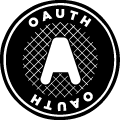 Kristina Yasuda and I have published a new JWK Thumbprint URI draft that addresses the IETF Last Call comments received. Changes made were:
Kristina Yasuda and I have published a new JWK Thumbprint URI draft that addresses the IETF Last Call comments received. Changes made were:
- Clarified the requirement to use registered hash algorithm identifiers.
- Acknowledged IETF Last Call reviewers.
The specification is available at:
 I gave the following presentations at the Monday, April 25, 2022 OpenID Workshop at Google:
I gave the following presentations at the Monday, April 25, 2022 OpenID Workshop at Google:
- OpenID Connect Working Group (PowerPoint) (PDF)
- OpenID Enhanced Authentication Profile (EAP) Working Group (PowerPoint) (PDF)
I also gave the following invited “101” session presentation at the Internet Identity Workshop (IIW) on Tuesday, April 26, 2022:
- Introduction to OpenID Connect (PowerPoint) (PDF)
 Kristina Yasuda and I have published an updated JWK Thumbprint URI draft that addresses the OAuth Working Group Last Call (WGLC) comments received. Changes made were:
Kristina Yasuda and I have published an updated JWK Thumbprint URI draft that addresses the OAuth Working Group Last Call (WGLC) comments received. Changes made were:
- Added security considerations about multiple public keys coresponding to the same private key.
- Added hash algorithm identifier after the JWK thumbprint URI prefix to make it explicit in a URI which hash algorithm is used.
- Added reference to a registry for hash algorithm identifiers.
- Added SHA-256 as a mandatory to implement hash algorithm to promote interoperability.
- Acknowledged WGLC reviewers.
The specification is available at:
 The IETF OAuth working group has adopted the JWK Thumbprint URI specification. The abstract of the specification is:
The IETF OAuth working group has adopted the JWK Thumbprint URI specification. The abstract of the specification is:
This specification registers a kind of URI that represents a JSON Web Key (JWK) Thumbprint value. JWK Thumbprints are defined in RFC 7638. This enables JWK Thumbprints to be used, for instance, as key identifiers in contexts requiring URIs.
The need for this arose during specification work in the OpenID Connect working group. In particular, JWK Thumbprint URIs are used as key identifiers that can be syntactically distinguished from other kinds of identifiers also expressed as URIs in the Self-Issued OpenID Provider v2 specification.
Given that the specification does only one simple thing in a straightforward manner, we believe that it is ready for working group last call.
The specification is available at:
 As requested by the chairs during today’s OAuth Virtual Office Hours call, Kristina Yasuda and I have updated the JWK Thumbprint URI specification to enhance the description of the motivations for the specification. In particular, it now describes using JWK Thumbprint URIs as key identifiers that can be syntactically distinguished from other kinds of identifiers also expressed as URIs. It is used this way in the Self-Issued OpenID Provider v2 specification, for instance. No normative changes were made.
As requested by the chairs during today’s OAuth Virtual Office Hours call, Kristina Yasuda and I have updated the JWK Thumbprint URI specification to enhance the description of the motivations for the specification. In particular, it now describes using JWK Thumbprint URIs as key identifiers that can be syntactically distinguished from other kinds of identifiers also expressed as URIs. It is used this way in the Self-Issued OpenID Provider v2 specification, for instance. No normative changes were made.
As discussed on the call, we are requesting that that the chairs use this new draft as the basis for a call for working group adoption.
The specification is available at:
 I had a fabulous time talking with my friend Vittorio Bertocci while recording the podcast Identity, Unlocked: OpenID Connect with Mike Jones. We covered a lot of ground in 43:29 – protocol design ground, developer ground, legal ground, and just pure history.
I had a fabulous time talking with my friend Vittorio Bertocci while recording the podcast Identity, Unlocked: OpenID Connect with Mike Jones. We covered a lot of ground in 43:29 – protocol design ground, developer ground, legal ground, and just pure history.
As always, people were a big part of the story. Two of my favorite parts are talking about how Kim Cameron brought me into the digital identity world to build the Internet’s missing identity layer (2:00-2:37) and describing how we applied the “Nov Matake Test” when thinking about keeping OpenID Connect simple (35:16-35:50).
Kim, I dedicate this podcast episode to you!
 I gave the following presentations at the Thursday, December 9, 2021 OpenID Virtual Workshop:
I gave the following presentations at the Thursday, December 9, 2021 OpenID Virtual Workshop:
- OpenID Connect Working Group (PowerPoint) (PDF)
- OpenID Enhanced Authentication Profile (EAP) Working Group (PowerPoint) (PDF)
 The JSON Web Key (JWK) Thumbprint specification [RFC 7638] defines a method for computing a hash value over a JSON Web Key (JWK) [RFC 7517] and encoding that hash in a URL-safe manner. Kristina Yasuda and I have just created the JWK Thumbprint URI specification, which defines how to represent JWK Thumbprints as URIs. This enables JWK Thumbprints to be communicated in contexts requiring URIs, including in specific JSON Web Token (JWT) [RFC 7519] claims.
The JSON Web Key (JWK) Thumbprint specification [RFC 7638] defines a method for computing a hash value over a JSON Web Key (JWK) [RFC 7517] and encoding that hash in a URL-safe manner. Kristina Yasuda and I have just created the JWK Thumbprint URI specification, which defines how to represent JWK Thumbprints as URIs. This enables JWK Thumbprints to be communicated in contexts requiring URIs, including in specific JSON Web Token (JWT) [RFC 7519] claims.
Use cases for this specification were developed in the OpenID Connect Working Group of the OpenID Foundation. Specifically, its use is planned in future versions of the Self-Issued OpenID Provider v2 specification.
The specification is available at:

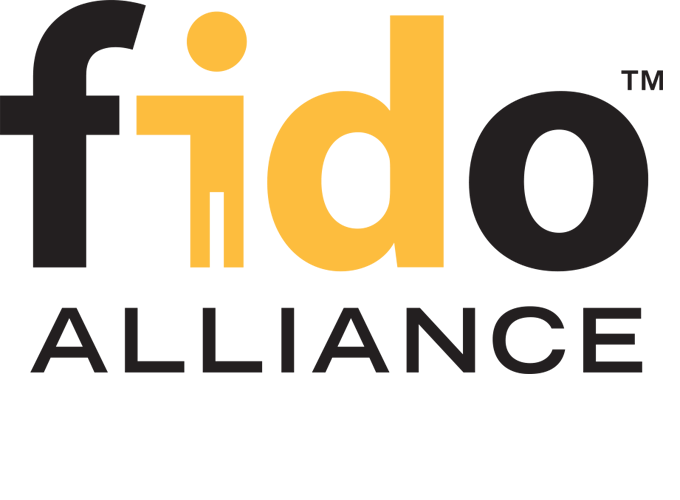 I described the relationship between OpenID and FIDO during the October 21, 2021 FIDO Alliance plenary meeting, including how OpenID Connect and FIDO are complementary. In particular, I explained that using WebAuthn/FIDO authenticators to sign into OpenID Providers brings phishing resistance to millions of OpenID Relying Parties without them having to do anything!
I described the relationship between OpenID and FIDO during the October 21, 2021 FIDO Alliance plenary meeting, including how OpenID Connect and FIDO are complementary. In particular, I explained that using WebAuthn/FIDO authenticators to sign into OpenID Providers brings phishing resistance to millions of OpenID Relying Parties without them having to do anything!
The presentation was:
- OpenID and FIDO (PowerPoint) (PDF)
 I’ve defined an Authentication Method Reference (AMR) value called “
I’ve defined an Authentication Method Reference (AMR) value called “pop” to indicate that Proof-of-possession of a key was performed. Unlike the existing “hwk” (hardware key) and “swk” (software key) methods, it is intentionally unspecified whether the proof-of-possession key is hardware-secured or software-secured. Among other use cases, this AMR method is applicable whenever a WebAuthn or FIDO authenticator are used.
The specification is available at these locations:
- https://openid.net/specs/openid-connect-eap-acr-values-1_0-01.html
- https://openid.net/specs/openid-connect-eap-acr-values-1_0.html
Thanks to Christiaan Brand for suggesting this.
 I gave the following invited “101” session presentation at the 33rd Internet Identity Workshop (IIW) on Tuesday, October 12, 2021:
I gave the following invited “101” session presentation at the 33rd Internet Identity Workshop (IIW) on Tuesday, October 12, 2021:
- Introduction to OpenID Connect (PowerPoint) (PDF)
The session was well attended. There was a good discussion about the use of passwordless authentication with OpenID Connect.
 I gave the following presentation on the OpenID Connect Working Group during the September 13, 2021 OpenID Workshop at the 2021 European Identity and Cloud (EIC) conference. As I noted during the talk, this is an exciting time for OpenID Connect; there’s more happening now than at any time since the original OpenID Connect specs were created!
I gave the following presentation on the OpenID Connect Working Group during the September 13, 2021 OpenID Workshop at the 2021 European Identity and Cloud (EIC) conference. As I noted during the talk, this is an exciting time for OpenID Connect; there’s more happening now than at any time since the original OpenID Connect specs were created!
- OpenID Connect Working Group (PowerPoint) (PDF)
 The OAuth 2.0 JWT-Secured Authorization Request (JAR) specification has been published as RFC 9101. Among other applications, this specification is used by the OpenID Financial-grade API (FAPI). This is another in the series of RFCs bringing OpenID Connect-defined functionality to OAuth 2.0. Previous such RFCs included “OAuth 2.0 Dynamic Client Registration Protocol” [RFC 7591] and “OAuth 2.0 Authorization Server Metadata” [RFC 8414].
The OAuth 2.0 JWT-Secured Authorization Request (JAR) specification has been published as RFC 9101. Among other applications, this specification is used by the OpenID Financial-grade API (FAPI). This is another in the series of RFCs bringing OpenID Connect-defined functionality to OAuth 2.0. Previous such RFCs included “OAuth 2.0 Dynamic Client Registration Protocol” [RFC 7591] and “OAuth 2.0 Authorization Server Metadata” [RFC 8414].
The abstract of the RFC is:
The authorization request in OAuth 2.0 described in RFC 6749 utilizes query parameter serialization, which means that authorization request parameters are encoded in the URI of the request and sent through user agents such as web browsers. While it is easy to implement, it means that a) the communication through the user agents is not integrity protected and thus, the parameters can be tainted, b) the source of the communication is not authenticated, and c) the communication through the user agents can be monitored. Because of these weaknesses, several attacks to the protocol have now been put forward.
This document introduces the ability to send request parameters in a JSON Web Token (JWT) instead, which allows the request to be signed with JSON Web Signature (JWS) and encrypted with JSON Web Encryption (JWE) so that the integrity, source authentication, and confidentiality properties of the authorization request are attained. The request can be sent by value or by reference.
Thanks to Nat Sakimura and John Bradley for persisting in finishing this RFC!
